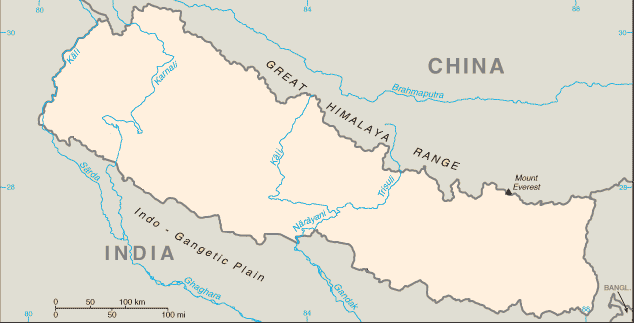Long-known as a cannabis mecca, Nepal would establish a formal program to develop medical cannabis and the hemp sector under a bill that has been proposed in the country’s parliament.
The Cannabis Cultivation Act, put forth by MP Sher Bahadur Tamang and signed by 40 legislators, would require no license for growers of hemp destined for foods, including but not limited to seeds, honey, oil and drinks, and use of the hemp stalk for industrial purposes. Sales and distribution of those products also would not require special license under the proposal.
Research and production of CBD would presumably be licensed under medical cannabis provisions in the bill, but the measure is intended primarily to advance that compound for Ayurvedic and allopathic healing, according to Nivedita Bansal Shah, COO and a co-founder at Janakpur-based Shah Hemp Inno-Ventures (SHIV), Nepal’s leading hemp company.
THC limit is troublesome
However the bill’s recommended THC limit of 0.2% – which follows the current European standard – would challenge those who want to farm hemp, likely requiring years of breeding to develop cultivars that would come in under that benchmark.
“Setting THC limits is not relevant in Nepal unless and until we study our genetic landraces,” said Dhiraj K. Shah, SHIV’s CEO and co-founder. “This law would lead to the import of certified 0.2% THC seeds, destroying our genetics even before we could discover their potential,” Shah said. “This is what happens when underdeveloped countries make laws under the influence of developed countries.”
The global, informal definition of hemp is cannabis with less than 0.3% THC, but some countries in Asia, Africa and Latin America have set their THC limits at a full 1.0%; and even Europe is expected to push its THC barrier from 0.2% to 0.3% soon.
What’s in ‘wildcrop’?
Plants that grow in nature in Nepal – “wildcrop” – which have never really been tested for THC, have been harvested and turned into products for ages, but the hemp industry has remained in a primitive stage because of lack of proper technical infrastructure and unclear laws, said Nivedita Shah.
Despite the doubts over the proposed measure’s treatment of THC, “It is very encouraging that there is a bill presented to government for legalization of both medical cannabis and hemp,” she said. “We hope it still remains on government’s priority even in face of this pandemic because holistic use of the cannabis plant can be a long term solution to Nepal’s economic vulnerabilities.”

